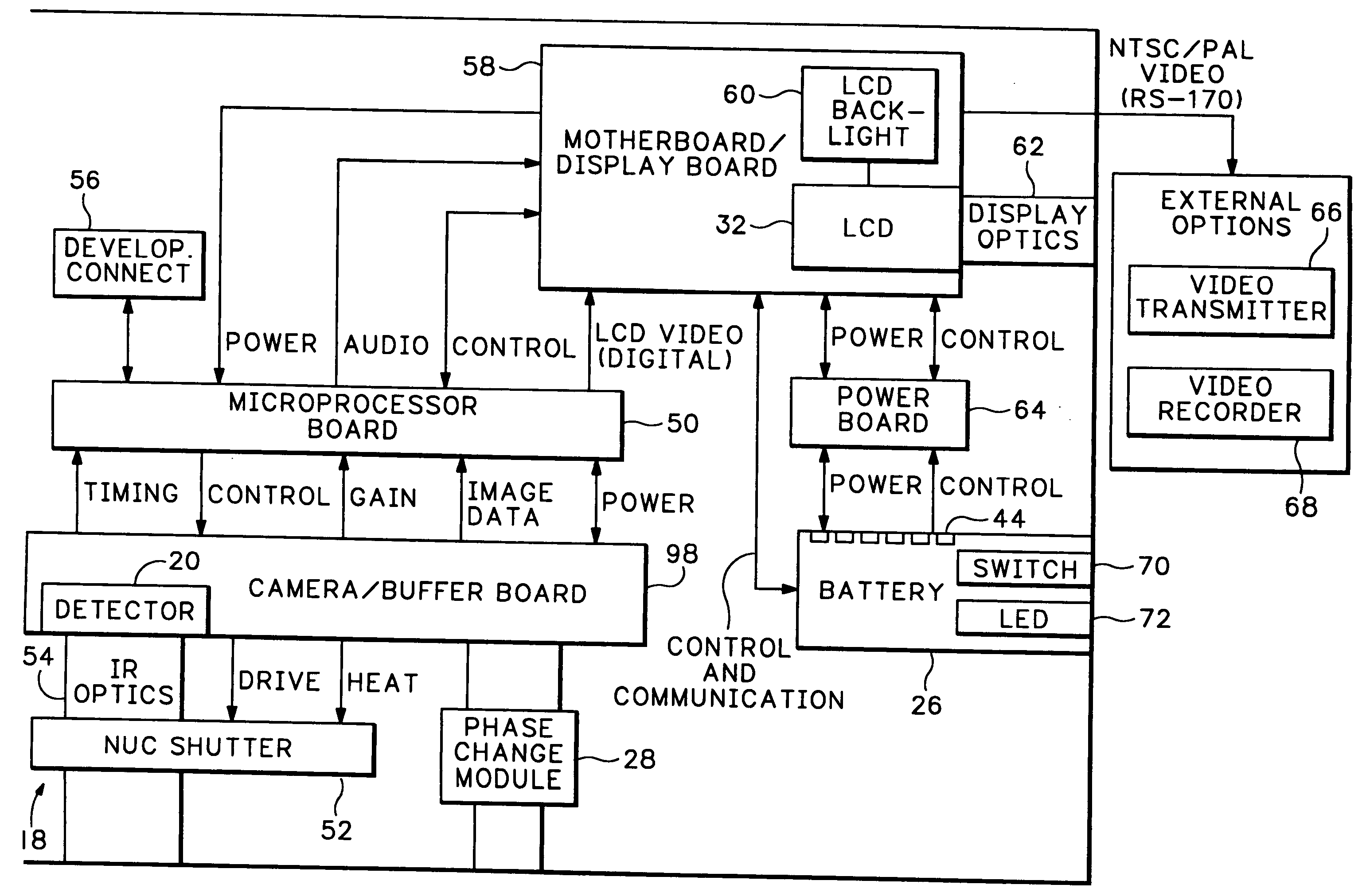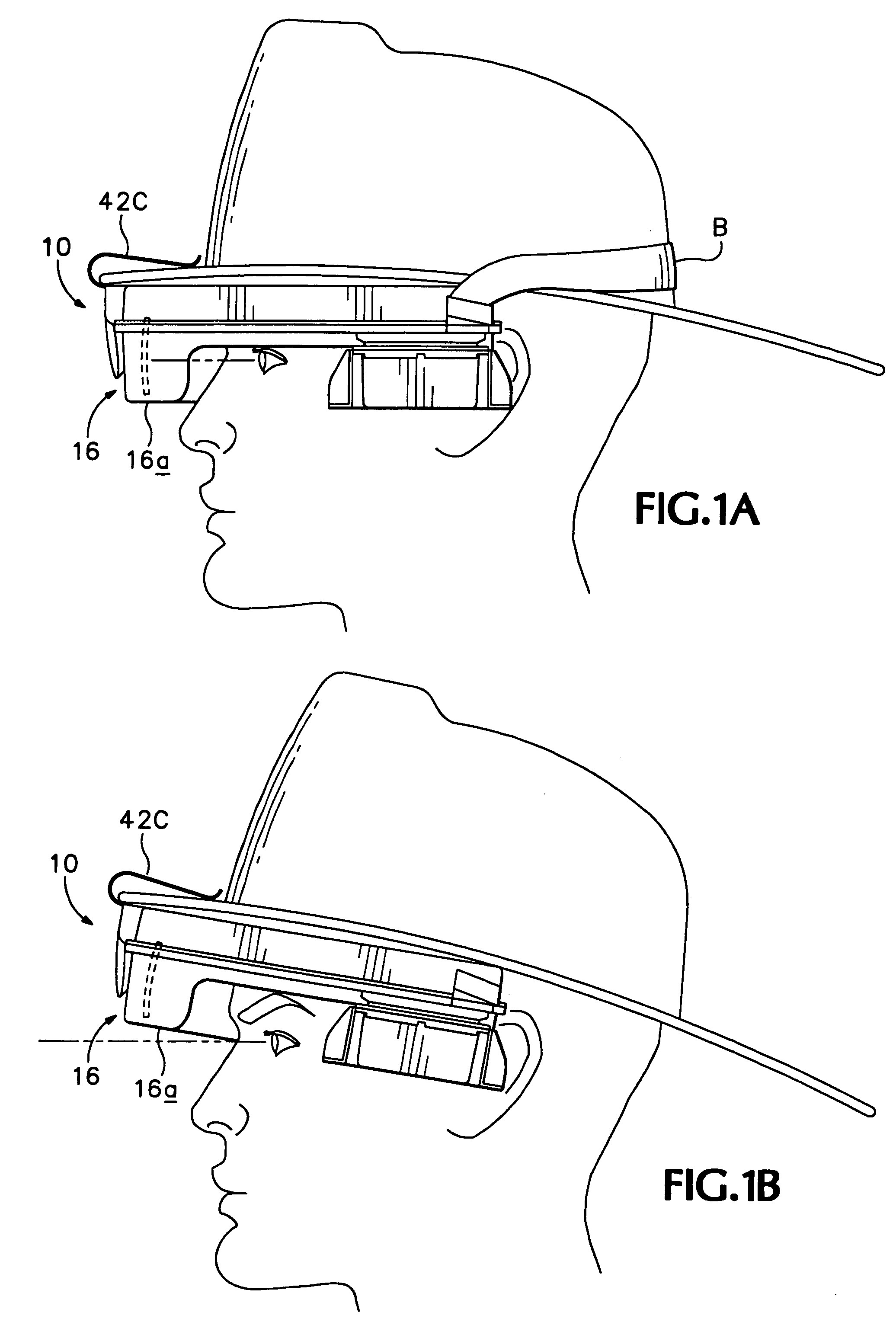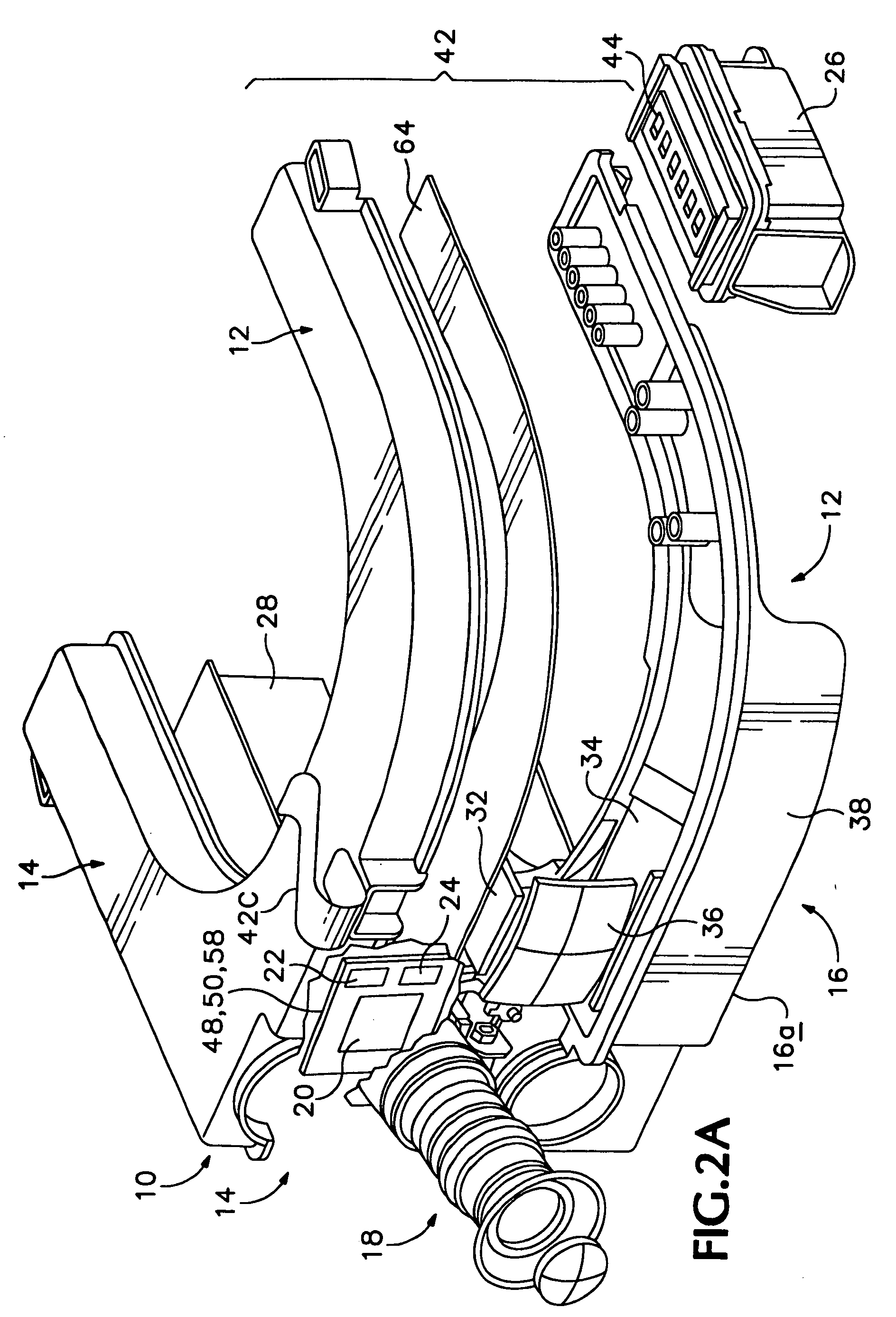Portable radiometry and imaging apparatus
a radiometry and imaging apparatus technology, applied in the field of blind vision equipment and hazards, can solve the problems of affecting normal vision, affecting normal vision, and causing lethal high temperatures, and achieve the effects of easy installation and removal, enhanced vision, and easy repositioning
- Summary
- Abstract
- Description
- Claims
- Application Information
AI Technical Summary
Benefits of technology
Problems solved by technology
Method used
Image
Examples
Embodiment Construction
[0016] Referring first to FIGS. 1A, 1B, 2A and 2B, a preferred embodiment of the invented wrap-around, head-up display apparatus is indicated generally at 10. Apparatus 10 may be seen to include a left arching region 12, a right arching region 14 and a forward arching region 16 that hovers preferably just above the user's eye level on the face. Apparatus 10 preferably includes a lightweight, preferably molded polymer housing with an interior void in which are located all essential components including an IR (thermal) optical engine 18 located adjacent forward region 16.
[0017] Optical engine 18 includes an un-cooled bolometric IR detector array 20, preferably of the type described and illustrated in commonly owned U.S. Pat. No. 5,554,849 entitled MICRO-BOLOMETRIC INFRARED STARING ARRAY and issued Sep. 10, 1996, the disclosure of which is incorporated herein by reference. Array 20 produces a high-resolution, two-dimensional, temperature pixel image of a scene within its field of view...
PUM
| Property | Measurement | Unit |
|---|---|---|
| temperatures | aaaaa | aaaaa |
| temperatures | aaaaa | aaaaa |
| temperatures | aaaaa | aaaaa |
Abstract
Description
Claims
Application Information
 Login to View More
Login to View More - R&D
- Intellectual Property
- Life Sciences
- Materials
- Tech Scout
- Unparalleled Data Quality
- Higher Quality Content
- 60% Fewer Hallucinations
Browse by: Latest US Patents, China's latest patents, Technical Efficacy Thesaurus, Application Domain, Technology Topic, Popular Technical Reports.
© 2025 PatSnap. All rights reserved.Legal|Privacy policy|Modern Slavery Act Transparency Statement|Sitemap|About US| Contact US: help@patsnap.com



